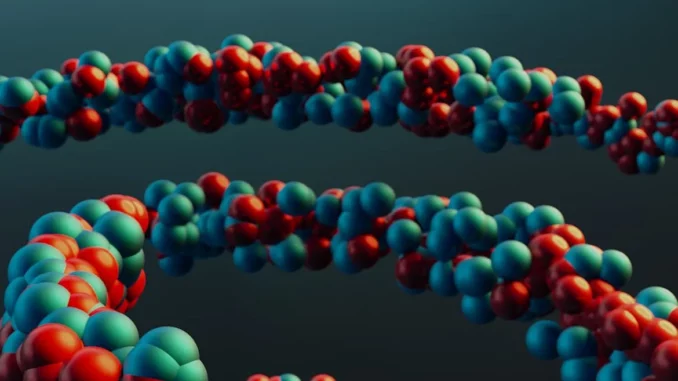
Summary
Protect your data with the self-healing storage solution that technical experts trust.
Innovative Polymer Poised to Transform Data Storage Landscape
In a significant breakthrough, researchers at Flinders University have developed a polymer material that could reshape the future of data storage. This material, which utilises nanoscale patterns to encode data, promises higher storage densities and improved sustainability compared to existing technologies. “This polymer not only offers greater efficiency but also a greener alternative to current methods,” notes Charles Whitman, an industry observer. As the demand for data storage escalates, this advancement is both timely and potentially transformative.
Main Article
The relentless growth in data generation, driven by advancements in big data, artificial intelligence, and the Internet of Things (IoT), has propelled the need for more efficient and sustainable storage solutions. Traditional technologies such as hard disk drives (HDDs), solid-state drives (SSDs), and flash memory are increasingly falling short in meeting these demands due to their limitations in data density, energy consumption, and environmental impact. In response to these challenges, the Chalker Lab at Flinders University has introduced an innovative polymer that could dramatically change the data storage landscape.
Revolutionary Polymer Technology
The newly developed polymer encodes information through tiny “dents” that form nanoscale patterns, significantly increasing storage capacity when compared to conventional HDDs. This advancement is not just about capacity; it also introduces a sustainable and energy-efficient approach to data storage. The polymer’s recyclability stands out as a key feature. Unlike traditional storage media, which often have finite lifespans and contribute to electronic waste, this polymer can be easily erased and reused. Short bursts of heat can erase the stored data within seconds, allowing for multiple cycles of writing, reading, and erasing.
Economic and Environmental Impact
The polymer’s foundation lies in the use of simple, renewable polysulfides, which are both cost-effective and abundant. Constructed from inexpensive materials like sulfur and dicyclopentadiene, its unique properties were uncovered using advanced tools such as atomic force microscopes and scanning probe instruments. Professor Justin Chalker and his research team have already achieved storage densities that surpass those found in typical hard drives, marking a pivotal milestone in the pursuit of more efficient data storage solutions.
The potential applications of this polymer are extensive. In today’s data-driven world, the ability to store vast amounts of information compactly, sustainably, and cost-effectively is of immense value. From data centres to personal computing devices, this polymer could herald a new era of data storage that is not only more efficient but also more environmentally responsible.
A New Approach to Data Storage
While the concept of using surface indentations to store data is not entirely new, with companies like IBM, LG Electronics, and Intel having explored this approach, previous attempts faced challenges such as high energy demands, material costs, and system complexities. The Flinders University polymer distinguishes itself with a dual structure that allows for mechanical data encoding and rapid heat-enabled erasure, effectively addressing many issues that previously hindered commercial viability.
Detailed Analysis
The implications of this pioneering work extend beyond just storage capacity and sustainability. In a world increasingly concerned with the environmental impact of electronic waste and the energy consumption of data centres, the need for greener, more efficient storage solutions is critical. “The development of this polymer is a promising step towards reducing our environmental footprint,” asserts Helen Grant, an industry analyst, highlighting its potential to address these urgent challenges.
The global data storage market is growing at an unprecedented pace, driven by digital transformation across industries. The introduction of this polymer could disrupt existing markets and stimulate further innovation in the sector. Its cost-effectiveness and environmental benefits could also accelerate its adoption, positioning it as a viable alternative to traditional storage technologies.
Further Development
As research and development efforts continue, the potential for this polymer is vast. The team at Flinders University is poised to explore further enhancements, including scaling up the technology for broader applications and integrating it with existing systems. Future studies may also focus on refining the polymer’s properties to optimise performance and sustainability further.
The emergence of this polymer marks a significant advancement in the field of data storage. As the technology matures, it holds the promise of revolutionising the way data is stored and managed, setting the stage for a future where data storage is both efficient and environmentally conscious. Readers are encouraged to follow this developing story as it unfolds, with significant updates anticipated in the coming months.

